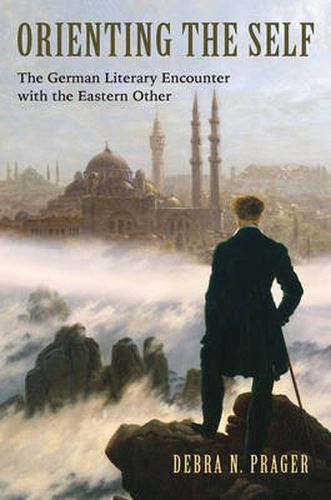Readings Newsletter
Become a Readings Member to make your shopping experience even easier.
Sign in or sign up for free!
You’re not far away from qualifying for FREE standard shipping within Australia
You’ve qualified for FREE standard shipping within Australia
The cart is loading…






For centuries, Europe’s eastward gaze has been wary if not hostile. Medieval man envisaged grotesque beings at the world’s edge and scanned the steppes and straits on the immediate horizon for the Asian or Arab hordes that might swarm across them. Through the Crusades, the early modern era, and the age of imperialism, Europeans regarded the Eastern subject as requiring both discovery and conquest. Conveniently, the Oriental came to represent fanaticism, terrorism, moral laxity, and inscrutability, among other stereotypes. The list of German literary works that reinforced negative cliches about the East is long, but Orienting the Self argues for the presence in the Germanliterary tradition of a powerful perception of the East as the scene of desire, fantasy, and fulfillment. It follows the evolution of the Orient as a literary device and demonstrates how it was used to explore subjectivity and the possibility of wholeness. The five works treated in this study - Parzival, Fortunatus, Effi Briest, Heinrich von Ofterdingen, and The Magic Mountain - are narratives of development in which the encounter with the East is central to the progression toward selfhood and the promise of fulfillment.
Debra N. Prager is Associate Professor of German at Washington and Lee University.
$9.00 standard shipping within Australia
FREE standard shipping within Australia for orders over $100.00
Express & International shipping calculated at checkout
For centuries, Europe’s eastward gaze has been wary if not hostile. Medieval man envisaged grotesque beings at the world’s edge and scanned the steppes and straits on the immediate horizon for the Asian or Arab hordes that might swarm across them. Through the Crusades, the early modern era, and the age of imperialism, Europeans regarded the Eastern subject as requiring both discovery and conquest. Conveniently, the Oriental came to represent fanaticism, terrorism, moral laxity, and inscrutability, among other stereotypes. The list of German literary works that reinforced negative cliches about the East is long, but Orienting the Self argues for the presence in the Germanliterary tradition of a powerful perception of the East as the scene of desire, fantasy, and fulfillment. It follows the evolution of the Orient as a literary device and demonstrates how it was used to explore subjectivity and the possibility of wholeness. The five works treated in this study - Parzival, Fortunatus, Effi Briest, Heinrich von Ofterdingen, and The Magic Mountain - are narratives of development in which the encounter with the East is central to the progression toward selfhood and the promise of fulfillment.
Debra N. Prager is Associate Professor of German at Washington and Lee University.